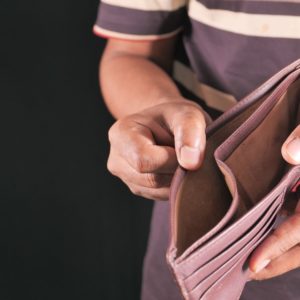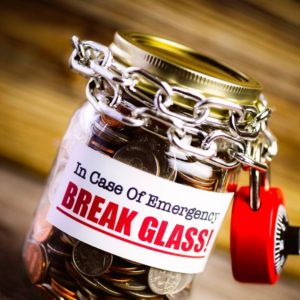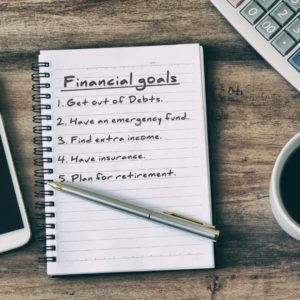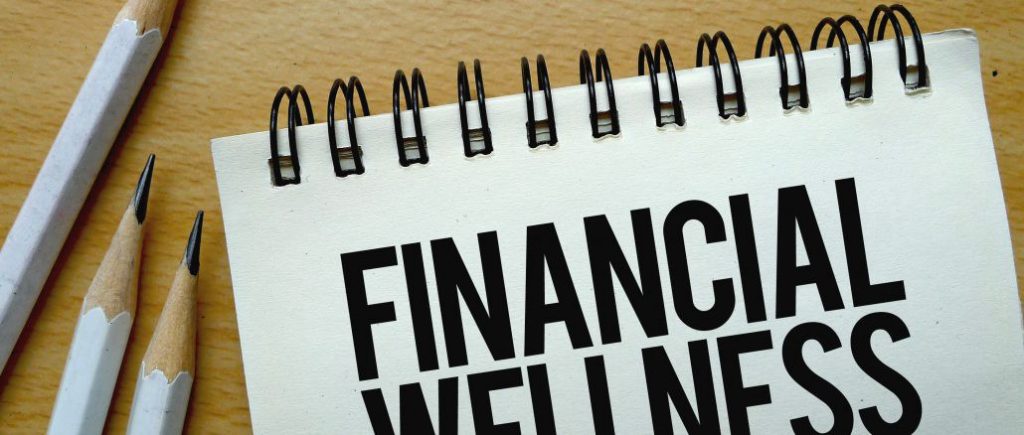I believe that through knowledge and discipline, financial peace is possible for all of us.
-Dave Ramsey
Hey friends!
Happy New Month. How was your February? It’s always the shortest month of the year and feels super rushed. So, I hope you took your time to live it through intentionally with lots of love and care for yourself.
Today, I will share an area of life I struggled greatly with. We all have certain areas of our lives that we don’t have control over. This can make us feel inadequate or dissatisfied.
For many years, managing my finance was one of the areas I had no desire to explore. So, I avoided topics around this subject and also avoided checking my bank accounts to know my expenses.

I had a structure in my head and wanted to maintain it. If I am not in debit at the end of the month then am good, was what I told myself! How wrong I was?!
There were times when I thought that the easiest way to grow my finances, was to find a new job and reduce my expenses. Although these are good ways of increasing finances, but, if one does not change their lifestyle and purchasing decisions, they’d soon realise that the new job, even with its higher pay doesn’t really make a difference. It only means that you had more money to spend but not necessarily more money to save or invest which was my experience.
I started full time employment in my mid-late 20s as my career path required that I had to spend more time studying to qualify. Going into the workforce at this age, meant I had less time before my 30s and even less time to put in financially good practices to prevent me from wasting my money with little to show for it.

Of course, I wanted to meet colleagues and friends after work, buy fancy work outfits, bags and shoes. But there is a limit and this is where Financial Wellness comes into play. In the great words of Will Rogers, “Too many people spend money they earned..to buy things they don’t want..to impress people that they don’t like”.
Whether we accept it or not, our financial state affects our emotional and physical wellness. It impacts our everyday life.
So, what did I do to correct this in my life?
I developed an interest in Financial Wellness.
Financial Wellness
Financial wellness is simply your relationship with money. It also includes the plans you put in place to deal with variables that could impact your finances.
“Wealth consists not in having great possessions, but in having few wants”
–Epictetus.
Improving your financial wellness means improving your relationship with money. It could be learning how to budget with what you have, working on your self-discipline, laying out financial goals, saving more, etc.
Money can be the sinews of war, especially during these dire pandemic times. Many lost their jobs, furlough, if not worse their livelihoods. It takes a toll on everyone’s well being.
Though money is a physical object and we have a strong emotional relationship with finances. It is crucial for your mental health to not stress during times of uncertainty.

We can win those battles. There are a lot of personal-finance lessons we can learn, lessons that will put us in good stead, whatever the economic future holds.
So I would like to start by sharing with you my 5 steps to financial wellness – the tips shared below were the habits I cultivated to propel my financial wellness lifestyle.
Are you ready? These are tough practices in the first months but they can soon become a lifestyle and one that you will find enjoyable if you’re willing to put the initial work.
5 STEPS TO BE IN CONTROL OF YOUR FINANCES
- Start a Budget and Prioritise your Bills
The journey to financial wellness actually gets easier when you take the time to create a budget. It might sound complicated, but there is a way to break down the process.
So try to create a spending plan, it can help you figure out how much money you have ( i.e. incoming); how much money you need to set aside each month for bills and expenses ( i.e. outgoing) and setup a plan to meet your financial goals ( i.e. savings)

Changes in our financial lives can often result to stress and mental fatigue, making decisions even more challenging. We have a natural tendency to avoid choices that feel like we are giving something up. But in the case of financial choices, I find that the stress level reduces when we are on track with our incomings, outgoings and savings. We are in control of our life in this area and it results to a more balanced life in other areas.
I remember when I did not have much control in this area, I was stressed and unhappy. I don’t know about you but that is not the life I want for myself. A well balanced life enriches us and our finance is a great place to start. Here are some great articles on starting out with a budget .
- Build up an emergency fund (no matter how small)!
Never in a million years would you have made a specific financial plan expecting a new virus to turn not just the world upside but also your pay check. Unfortunately, our savings accounts do feel the ripple effect of larger-than- life forces and events across the globe.
Preparing yourself for a financial setback, such as an unexpected loss of income, can set you up to handle it with less stress and bounce back more quickly. It is very helpful to think about these plans at a time when things feel “normal,” so that we get the full advantage of perspective on a potentially frightening and stressful event.

This was how I started- even as little as £100 per month is £1200 per year if not touched. If you are like me who enjoys investing – putting this in an investment portfolio can increase your £1200 in the first year by an additional £120. Then after a few years, the compounding effect even increases further. We will explore more of this in other posts on finances. But as a starter, this App MoneyBox is a great tool to save your little change whenever you shop. It rounds up your coffee purchase by a few pennies and before you know it, you have a few thousands without even trying!
- Keep sight of your goals
It is very easy to put your goals on hold during a time of extreme uncertainty. However, this is an excellent time to reflect and realign your financial goals. If you lost your job or fell into an unexpected medical expense, you may be realising how important an emergency savings account is. Maybe you wanted to pay off your debt this year, but your cash flow is tight. The unexpected scenarios are endless. Still, it is to use this negative time to create a positive situation for your financial future.

- Try to shop less online unless it’s essential
Financial Wellness is a lifestyle choice and it needs discipline to continue and remain. I learnt the importance of delayed gratification on my financial wellness journey.
Before, I used to be guilty of shopping online like it’s easy to go down that deep rabbit hole on Amazon, Asos etc… or noticing the flaws of your home, while spending every second of every day inside “Oh I want a new vase! I want a new pair of jeans! I want this, I want that!…” – for fun in between you could show a mug or a new vase or anything non essential you bought -.
It’s so important to practice the discipline of self-control when it comes to online shopping. and delayed gratification was one of the ways I nailed this. Seeing something I like and asking myself to wait a day or two. If I still like it then I’d get it. Most times I forget about it! As women, we are emotional buyers, so stepping away from that item and giving ourselves a few weeks and now I go months and years before getting something.
If I still miss it after so long, means its necessary – then I plan for it. Learning to plan and save up for something even if its £100, means that you are not using your cards often. But it also means that you worked for the money spent on that item. You can plan around it depending on how you are paid. If you put away £25 per month for 4 months, you are in a better financial state by then than purchasing it spontaneously. So, before you make the purchases, make sure that they align with your goals and your budget. Make the difference between wants and needs!
- Limit your Expenses
Following on nicely from the 3rd point above, limiting online shopping is one of the other ways to limit your expenses so that you avoid spending too much on food delivery. You can always indulge but every 2 days it definitely cost you £££ and calories [chuckles].

No one can cancel Netflix lately let’s be real! So I’d suggest try to cancel the unnecessary subscriptions. E.g the gym subscription can be suspended if you haven’t already done so.
Keeping up with our health is also a major aspect of physical and mental wellness – So, I’d suggest joining free online workout sessions. There are loads, even my gym offers a few. Search online for these and join without having to pay.
I have listed below things you can do for free without the need to pay:
- Wash your own car.
- Learn how to do simple home repairs instead of paying someone, trust me YouTube is a great resource of tutorials.
- Drink more water. Limit soda and other beverages that cost money.
- Ride your bike, walk. Public transportation is tricky lately so use it depending on your destination.
- Learn to DIY – you learn more skills and grow in self-development and self-sufficiency.
- Cook at home more rather than out. There are so many recipes online for free – you eat healthy and richly as you know exactly what is included in your meal.
- Find an Accountability Partner
It’s vital to have someone in your life to keep you financially accountable. By having a partner to lean on, you will be more successful in meeting your long-term goals and managing everyday spending. Your accountability partner will be able to keep you on track when you are tempted to stray.
Sometimes this arrangement is an organic development (a friend , a partner or parents who checks in with you regularly, and with whom you are comfortable sharing your struggles and progress). But sometimes you need to be intentional about it, and make the arrangement a bit more “official.”
We all need someone trustworthy in our lives who isn’t afraid to ask us how the budget’s going and call us out when we’re going against our commitments.
I’m not saying you shouldn’t have fun once in a while. Matter of fact, here is an article on how to Enjoy London with no Money.




